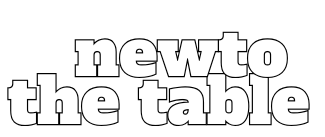Buying a home isn’t just a transaction; it’s an adventure filled with excitement, stress, and the occasional existential crisis. Whether it’s the thrill of imagining your future in a cozy living room or the panic of realizing you have no idea what escrow means, navigating the home purchase process can feel like trying to solve a Rubik’s Cube blindfolded.
But fear not! With the right guidance, that dream home can go from a mere Pinterest board fantasy to a reality. This article breaks down the ins and outs of home buying, making it less of a daunting task and more of a delightful journey. Get ready to unlock the secrets of homeownership and laugh a little along the way. After all, who said buying a house couldn’t be fun?
Table of Contents
ToggleUnderstanding Home Purchase
Home purchases represent significant milestones in people’s lives. Navigating this complex process requires awareness and informed decisions.
Importance of Home Purchase
Owning a home builds equity. This long-term investment improves financial stability. Homes provide consistent shelter and increase in value over time. Communities often strengthen through homeownership, as residents form lasting bonds. Stability and security arise from having a dedicated space for families and personal expression. Furthermore, tax advantages frequently accompany owning a home, offering additional financial benefits.
Key Considerations Before Buying
Individuals must evaluate their financial readiness before entering the housing market. Understand budgeting, including monthly mortgage payments, property taxes, and insurance costs. Assessing credit scores also plays a vital role in securing favorable mortgage rates. Location considerations impact commuting, schools, and amenities. Home inspections provide insights into property conditions, forewarning potential issues. Lastly, choosing the right real estate agent ensures a smoother transaction, as experienced professionals navigate the complexities of the market.
Financing Your Home Purchase

Financing a home purchase involves understanding various options and making informed decisions. Evaluating different mortgage types and setting a realistic budget play crucial roles in achieving homeownership.
Types of Mortgages
Fixed-rate mortgages offer stability with consistent monthly payments over the loan term, commonly 15 or 30 years. Adjustable-rate mortgages begin with lower rates that change after an initial period, which could lead to lower payments but potential increases later. FHA loans cater to buyers with lower credit scores and require smaller down payments. VA loans serve eligible veterans and active military members, offering favorable terms with no down payment required. Understanding mortgage types helps buyers choose the best option for their financial situation.
Budgeting for Your Purchase
Budgeting for a home purchase includes assessing monthly income and expenses. Buyers must consider down payment amounts, typically ranging from 3% to 20% of the home price. Mortgage insurance might add to monthly costs, especially for lower down payments. Property taxes and homeowners insurance also impact monthly budgets. Creating a detailed budget ensures buyers remain financially comfortable throughout the home buying process. Prioritizing needs and wants can help individuals find the right home without overstretching finances.
The Home Buying Process
Navigating the home buying process involves several key steps that help potential buyers transition from dreaming of a home to owning one.
Finding the Right Property
Identifying the perfect property requires careful consideration of several factors. Start by determining desired features like number of bedrooms and outdoor space. Also, consider location aspects such as proximity to schools, work, and amenities. Exploring neighborhoods can provide insight into community dynamics and property values. Engaging with a knowledgeable real estate agent can streamline the search, as they understand market trends and inventory levels. Scheduling viewings is important for evaluating properties firsthand, allowing buyers to assess layout and condition. Lastly, trust instincts when comparing options, as feelings toward a property often guide successful purchasing decisions.
Making an Offer
Formulating a competitive offer involves understanding market conditions and the specific property’s value. Assess recent sales in the area to determine a fair offer price. Also, include attractive terms to persuade sellers, such as flexibility on closing dates. An earnest money deposit demonstrates commitment and good faith, which speaks volumes to sellers. Consulting with a real estate agent can clarify necessary contingencies, like home inspections or financing terms, ensuring adequate protection. Submit the offer promptly to capture interest; waiting too long may jeopardize the opportunity. Engaging in negotiations may occur after the initial offer, allowing buyers to adjust terms for mutual agreement.
Common Mistakes in Home Purchase
Navigating the home buying process involves avoiding common pitfalls. Awareness of these mistakes helps buyers make informed decisions.
Overlooking Hidden Costs
Buyers often underestimate additional expenses tied to home purchases. Closing costs can range from 2% to 5% of the home’s purchase price. Repairs and maintenance typically add unforeseen expenses, as homeowners’ responsibilities begin after closing. Property taxes vary significantly, and buyers should factor them into their budget. Insurance costs may also fluctuate based on home value and location. Ignoring these factors can lead to financial strain. Buyers who plan for these hidden costs ensure a smoother transition into homeownership.
Failing to Conduct Proper Inspections
Neglecting home inspections represents a costly mistake for buyers. Comprehensive inspections reveal critical issues in a property before the purchase. Ignoring this step can lead to expensive repairs post-sale. Mold, foundation issues, or outdated systems can remain undiscovered without a thorough inspection. Homebuyers should prioritize hiring certified inspectors to assess potential properties. Investing in inspections provides transparency and assists in negotiating repairs or price adjustments with sellers. Buyers who engage in proper inspections protect themselves from future financial burdens.
Embarking on the journey of home purchase is a significant step that can shape one’s future. With the right knowledge and support, buyers can navigate this complex process more confidently.
It’s essential to keep in mind the importance of thorough research and planning. By understanding financial options and potential pitfalls, buyers can make informed decisions that lead to successful homeownership.
Ultimately, the experience should be rewarding and fulfilling. Embracing the journey with a positive outlook can turn this adventure into a cherished milestone in life.








